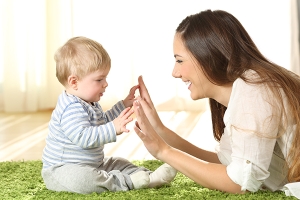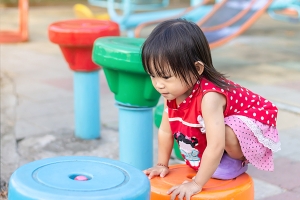
Growing healthy emotional bonds between generations helps children develop a sense of identity, continuity and an understanding of their place in family history. Kids who regularly interact with older and younger generations enjoy the security of knowing they belong to an extended tribe who cares about them and each other. But it’s not just about kids. Penn State researchers report that people with successful relationships—both within their own generation and with older and younger ones—have a better chance of maintaining well-being and happiness throughout life.
When generations gather around the table, it can be a time of sharing, laughter and fun. It can also be stressful, frustrating and tense when those generations don't understand the needs and concerns of the others.
Whether your family only gathers for special occasions or is one of the estimated 20 percent of American households with multiple generations living under one roof, here's what to serve in generous portions to minimize stress while strengthening bonds between all ages.
For the Kids: Healthy Role Models
Little eyes are watching as grownups work together in the kitchen, cooperating and compromising over the best way to prepare a favorite dish or properly set the table. They hear voices change when controversial topics come up, and they learn that peace is restored when people let things go.
Point Loma mother of two, Cari Pavao, says learning to move on from disagreements is one way her large multigenerational family stays on solid ground. “None of us hold grudges,” she says. “We disagree, maybe yell a bit, then we move on with our lives.” Pavao credits her mother with setting the standard. “My mom is the rock who holds us together. She really believes that family is important. So whether we agree or not, it is understood that you get on with your life, and you're still family. One disagreement can’t break that apart.”
Kids learn relationship skills by watching adults, so be a healthy role model: Demonstrate how to handle challenges by keeping a sense of humor, staying flexible and modeling grace.
For the Older Generation: Patience and Empathy
Grandparents and other seniors offer wisdom and perspective from a lifetime of experience. Encourage them to share their stories—show interest and offer patience.
“While older people are often excellent conversationalists,” says author Mary Pipher, “they may need a little help getting started.” In her book, Another Country: Navigating the emotional terrain of our elders, Pipher encourages family members to ask seniors questions, converse slowly, and give them time to remember and develop ideas.
Some seniors may need physical accommodation to help them feel included, but won't always speak up and ask. Stay sensitive to their traditional views and values, and don't take it personally if they grow short-tempered. Instead, watch for the underlying cause. It might be physical pain, fatigue or a problem that has a simple solution.
When my mother started having trouble hearing out of one ear, she became irritable when we gathered for meals until one day she mentioned her diminished hearing. Now we do our best to seat her in the center of the action where she doesn’t feel like she's missing out.
Building strong relationships between kids and grandparents benefits both generations. An Oxford study reports that children and teens with substantial grandparent involvement exhibit fewer behavioral problems. Younger family members expose older relatives to new ideas and activities that provide mental stimulation and reduce loneliness.
Your family can experience multigenerational benefits even if grandparents don't live nearby. Consider reaching out to one of the hundreds of seniors in San Diego County who don’t have family in town and are often alone. Check out www.livewellsd.org for ways to get involved in intergenerational programs that benefit all ages. From delivering cookies to playing cards, there are dozens of ways to make a date with a senior in your neighborhood.
For Parents in the Middle: Help with the Load
Parents in the middle generation often feel responsible for meeting the needs of everyone else, from kids and grandparents to siblings and spouses. Maintain a spirit of community by asking for help or offering it if another relative seems to be doing it all. Don't leave caregiving to just one or two middle generation siblings. It takes everyone working together to keep a multigenerational family healthy and connected.
Stay flexible when giving and receiving help. Trust and accept that things will get done, even if it may not be done your way. Open communication about needs and expectations is important. Express gratitude while being honest about what you are available and willing to do.
Gathering generations together is good for kids and families. By choosing to honor and embrace generational differences with an abundance of patience, love and respect, families experience greater joy and connection for generations to come.
Note: When Your Family Doesn’t Work this Way
Sometimes families break, making multigenerational gatherings difficult or impossible. Holidays and other special occasions can feel like a giant spotlight shining on the damaged spots in a family. This provides an opportunity to share with kids what healthy choices look like, even in relationships that are broken. There should be no pressure to let in people who hurt your family. Protect your kids and guard your heart by maintaining healthy boundaries. When kids are old enough to understand, have an honest conversation about how things got where they are. Then help kids set their own limits when dealing with family members who continue to behave badly. By modeling compassion and forgiveness along with healthy boundaries, parents help kids learn to handle difficult family situations with grace and kindness, without putting themselves in harm’s way.
Jody Lee Cates the award-winning writer of San Diego Family’s column, Parenting with Purpose. She also blogs about healthy relationships at www.jodyleecates.com
__________















